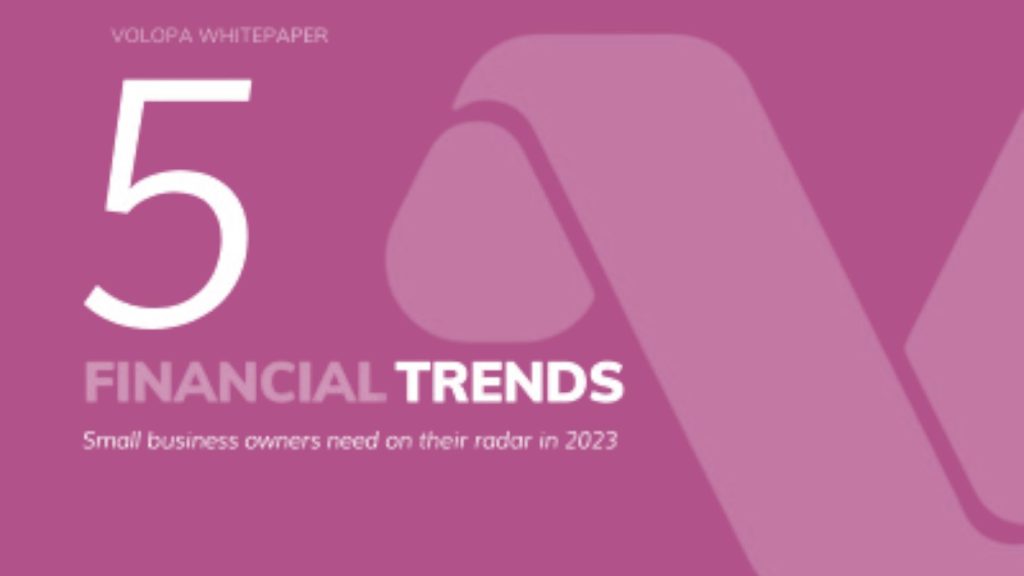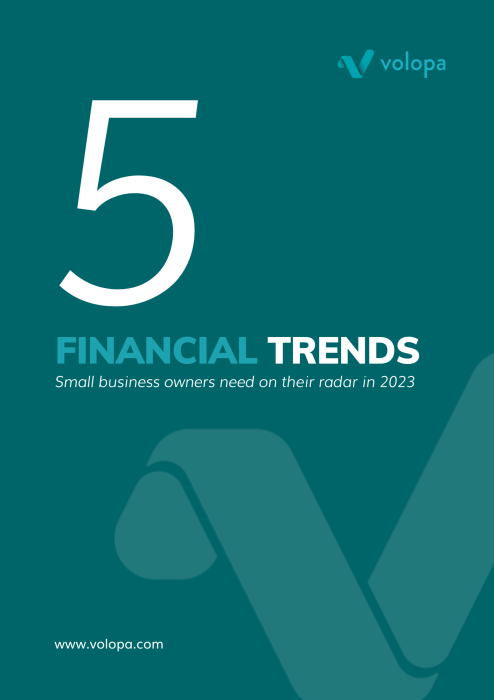Whitepaper
Five financial trends small business owners need on their radar in 2023

The UK’s small and medium-sized businesses have faced an onslaught of economic pressures over the last year, from supply chain shortages to rising fuel costs. Those that have survived have shown remarkable resilience – but 2023 will bring its own challenges.
The businesses that will thrive in 2023 will be the ones that can utilise technology to improve internal efficiency, better manage spending and cut back on waste. Robust financial management systems will be critical to not only riding out economic turbulence but capitalising on new opportunities.

In this whitepaper, you’ll learn:
- Key financial insights from previous downturns: What we can learn from the business winners and losers of the past three global recessions
- The top five financial trends of 2023: How SMEs can leverage the latest technology to improve forecasting, speed up processes and save money
- Practical ways you can get a better grip on your finances: Simple ways to improve your financial management, straight from our experts
Get this free resource in your inbox!

Securing the best exchange rates
Generally speaking, both banks and payments providers charge a margin, typically via a commission or a percentage-spread, for converting currencies from the funding currency (what you send them) to the payment currency (what the recipient receives). Banks are traditionally risk averse to currency movements due to the size of the portfolio of client assets they hold in multiple currencies. Any shock movement within the currency market can amount to significant losses, and in a bid to mitigate this risk, banks tend to apply higher margins.
International payments providers generally take a different approach, utilising live rates which they transact with immediately. Using this methodology, they don’t need to hold on to funds, the risk is less, and margins can therefore be much lower amounting to better exchange rates for their clients.
Payment Speed
Just as a bank cheque takes time to deposit into an account, so does sending money from one country to another. International FX payments can often take days to reach your recipient if sent via your bank. This is because banks often use manual currency conversion processes and tend to send funds via costly legacy banking networks. If you wish to transfer funds quickly, banks may not be your best option.
Specialist payments providers have established “points-of-difference” in the international payments market through innovative solutions to enable same-day international payments using more robust platforms and security systems. Specialist payment providers tend to route international payments via newer alternative payment rails that are quick, low-cost and easy to track, meaning recipients receive their payments in full and on time, while payment initiators can stay up to date with their payment statuses.
Conclusion
Whilst a bank may provide familiarity, specialised payments providers can offer better FX and payments expertise, superior technology and more cost-effective exchange rates. Through the tailoring of solutions and streamlining compliance requirements, services provided are largely more client-centric and focused. This often amounts to lower fees and charges as well as a superior customer experience for their clients.


